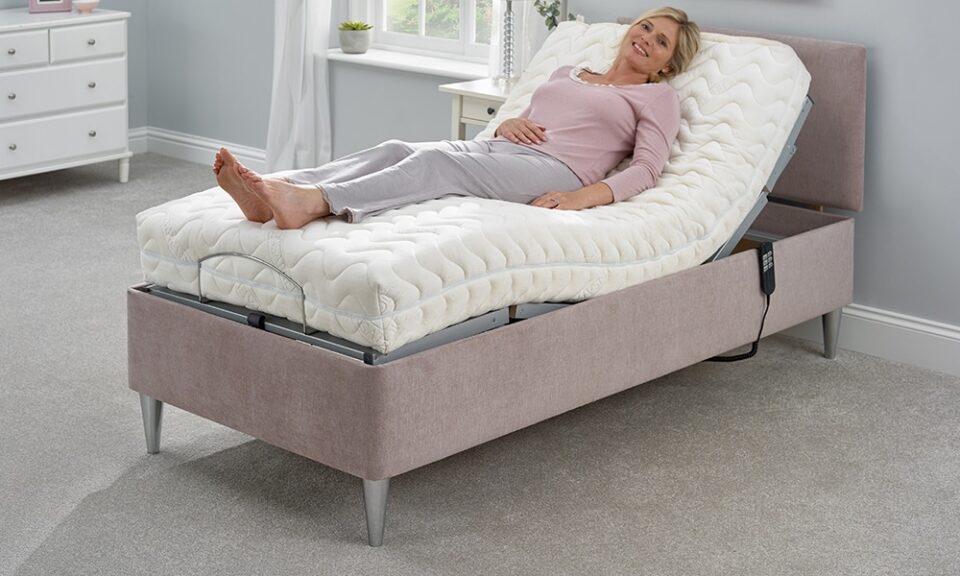If you wake up stiff, sore, or tired, your bed could be to blame. Many people assume their mattress doesn’t make much difference, but bed experts say otherwise. The right one can change how you sleep, how your body feels, and even how you start your day.
Orthopaedic beds are designed for support and posture. But what do the experts really think about them? Are they worth the investment, or just another marketing term?
Here’s what sleep specialists, physiotherapists, and mattress designers have to say.
What Is an Orthopaedic Bed?
According to mattress designers, an orthopaedic bed is built to support your spine, joints, and muscles while you sleep. It’s firmer than a standard mattress, helping your body stay in a healthy position through the night.
Unlike soft beds that let your body sink, orthopaedic mattresses hold you steady. This prevents your spine from bending out of line and reduces pressure on your hips and shoulders.
Dr. James Wood, a physiotherapist who works with back pain patients, says:
“The spine needs to rest in a neutral position during sleep. Too soft or too saggy, and you’ll wake up with stiffness or pain. A good orthopaedic mattress gives your body that even support.”
What Do Sleep Experts Say About Comfort?
Comfort can be tricky to measure because everyone sleeps differently. Sleep experts agree that the best mattress is one that supports without feeling like a board.
Sarah Lewis, a sleep consultant, explains it this way:
“An orthopaedic bed doesn’t have to feel rock hard. The modern versions are layered with memory foam, latex, or pocket springs that contour slightly to your body while still giving the support you need.”
That balance between firmness and comfort is what makes newer orthopaedic mattresses so popular. They keep your spine aligned but still feel comfortable enough for long nights of rest.
Who Benefits Most from an Orthopaedic Bed?
Orthopaedic beds are often recommended for people with back, neck, or joint pain. But they’re not just for those with medical problems.
Experts say anyone who spends long hours on their feet, sits at a desk all day, or carries stress in their shoulders can benefit from a supportive mattress.
Physiotherapist Rachel Adams notes:
“Even if you don’t have chronic pain, a mattress that supports your posture helps prevent it from developing later. It’s a bit like wearing the right shoes – your body thanks you for it.”
Older people, athletes, and those recovering from injury often find these beds especially helpful.
The Science Behind the Support
Manufacturers test orthopaedic mattresses differently from standard ones. The springs or foam densities are measured for pressure relief and alignment.
Pocket sprung orthopaedic models, for instance, have firmer coils that respond to different parts of the body. The shoulders, hips, and lower back get extra support where weight is concentrated.
Memory foam orthopaedic mattresses, on the other hand, use dense foam to spread pressure evenly. They mould to your shape without losing firmness, reducing pressure on sore joints.
Dr. Wood adds:
“A well-designed orthopaedic mattress doesn’t just support you – it also helps muscles relax. That’s why people often notice less morning stiffness after a few weeks.”
What About Firmness Levels?
One common mistake, experts warn, is assuming “orthopaedic” always means “very firm.”
Mark Harris, who has worked in the bed industry for over twenty years, explains:
“Many people think firm equals better support, but that’s not true for everyone. A lighter person might need a medium-firm mattress, while a heavier person may prefer something sturdier. What matters is even support across the body.”
Orthopaedic beds now come in a range of firmness levels, from medium to extra firm. The right choice depends on body weight, sleeping position, and comfort preference.
Are Orthopaedic Beds Worth the Cost?
While orthopaedic mattresses can cost more than standard ones, experts generally say they’re worth it. A good mattress lasts around eight years, and considering how much time you spend in bed, that’s a worthwhile investment. However, it probably isn’t worth spending money on an orthopaedic bed for guests, as a guest room is only used occasionally.
Cheaper beds can lose shape and support over time, which defeats the purpose. A mid-range orthopaedic mattress from a trusted brand often offers the best balance of comfort, longevity, and price.
Rachel Adams puts it simply:
“Think of it as supporting your future health. A few hundred pounds now can save you years of poor sleep and back problems later.”
What About Adjustable Orthopaedic Beds?
Another option is an adjustable orthopaedic bed, which lets you raise or lower sections of the frame. These are often used by people with medical conditions, but more and more households are choosing them for comfort and convenience.
Sleep expert Sarah Lewis explains:
“Adjustable beds aren’t just for hospitals anymore. You can lift your legs to improve circulation or raise your back slightly to ease breathing. Paired with an orthopaedic mattress, it’s an excellent setup for anyone who values comfort.”
The Verdict from the Experts
So, what’s the general opinion among the experts? Orthopaedic beds do make a difference – but only when you pick the right firmness and design for your body.
A mattress that supports proper posture, cushions pressure points, and lasts for years is worth the attention. Orthopaedic options tick all those boxes when chosen carefully.
The experts agree on one final point: try before you buy. Lie on the bed for at least ten minutes. Notice whether your hips and shoulders feel balanced, and whether your spine stays straight.
If it feels comfortable and supportive from the start, chances are you’ve found the right one.
In short: Orthopaedic beds aren’t a fad. They’re the result of years of design focused on how the human body rests best. Whether you suffer from pain or just want better support, listening to what the experts say could be the difference between restless nights and deep, refreshing sleep.

